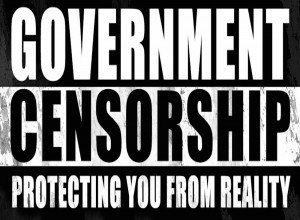German Chancellor Angela Merkel has faced several political attacks since she won re-appointment to the highest office in the land back in December of 2013. First it was the Ukraine crisis, which quickly led to continent wide sanctions between the U.S. and Russia which forced Germany into taking sides against their long standing trade partner. And now Merkel is being bombarded with a new problem that has in a short period of time, turned from support to rebellion as the flow of refugees from Muslim countries threatens her ability to lead.
When so-called Syrian refugees flooded into Europe from Turkey a few months ago, German citizens welcomed them with open arms and stood with their Chancellor in providing humanitarian aid to the wartorn peoples. But as news emerged that a majority of the refugees were not from Syria, and that many began to inflict violent crimes such as rape and murder on the regular citizens of Germany, that support has turned into rebellion, and is now knocking on the door of the government itself.
Germany’s Angela Merkel is used to owning the room when she speaks to her party faithful, but the mood turned hostile when she defended her open-door refugee policy this week.
In a heated atmosphere, some of the 1,000-odd members at the meeting warned of a “national disaster” and demanded shuttering the borders as Germany expects up to one million migrants this year.
“Stop the refugee chaos — save German culture + values — dethrone Merkel,” read a banner at the congress late Wednesday in the eastern state of Saxony, the home base for the anti-foreigner PEGIDA movement.
Merkel, who grew up behind the Iron Curtain in the communist East, insisted she would stay the course and told party members that “isolation already failed in the days of East Germany”.
Managing the refugee crisis has turned into Merkel’s greatest domestic political challenge since she took power almost 10 years ago, in November 2005.
“The chancellor is walking on thin ice,” judged the conservative daily Die Welt, pointing to a “growing gap” between Merkel and the base of her centre-right Christian Democrats (CDU) who demand she stem the record influx. - AFP
In past attacks on her power, it was businesses within Germany that threatened to force her hand in her alliance with the United States over Russian directed sanctions. But while she weathered that storm by having the support of the people for her pro-Western policy, this new agenda on refugee integration is now causing Merkel to lose even that foundational backing.
Muslims disappointed as fast-food chains have rejected a call by Hong Kong’s chief imam to offer halal meat in their restaurants.
Germany is by far the most industrialized country in Europe, but it is also one of the most homogeneous when it comes to culture and tradition. And so far, it appears that the incoming refugees have little desire to be a part of both German, and European society, and a new de facto conquest by Islam on the European continent is doing even greater harm to the West than the Moors ever did to Europe back in the Middle Ages.
Kenneth Schortgen Jr is a writer for Secretsofthefed.com, Examiner.com, Roguemoney.net, and To the Death Media, and hosts the popular web blog, The Daily Economist. Ken can also be heard Wednesday afternoons giving an weekly economic report on the Angel Clark radio show.

